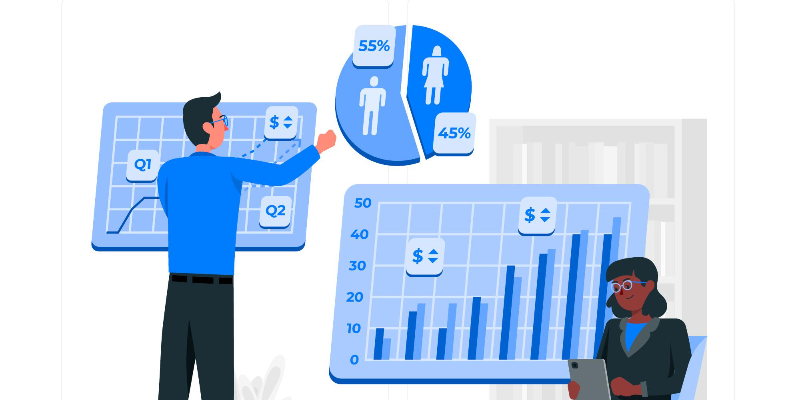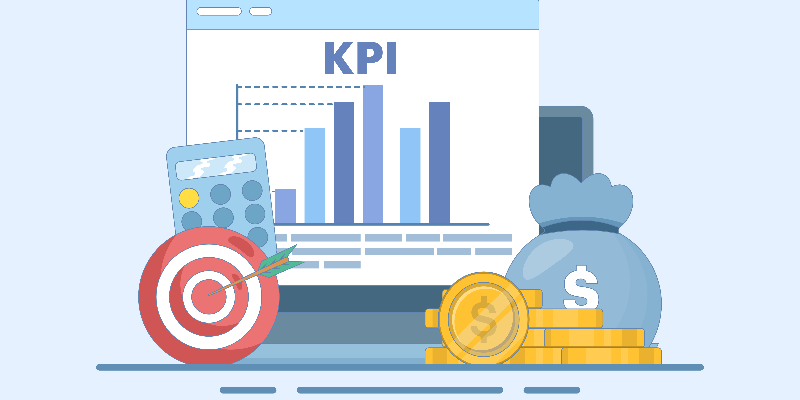

Digital marketing performance is dependent on data-driven decisions today more than ever; understanding
a competitor's interaction(s) with their pay-per-click (PPC) campaigns is essential. Whether to optimize
your ecommerce ad tracking, improve your Google Ads KPIs, or simply find new opportunities for growth,
performing a full PPC competitor analysis can illustrate how your PPC compares to the larger landscape of
companies achieving high-level performance. You can also spy on competitor's ads to identify positioning
opportunities and analyze PPC campaigns more effectively.
Whether you're providing in-house services or partnering with a PPC agency in Chennai, here's how to undertake this analysis step-by-step.
Your PPC competitors are not merely businesses selling similar products; they are the brands you are directly competing against in Google Ads and are also bidding on the same keywords or search terms. You may be bidding against brands that have dynamic relationships—some are brands you directly compete against in the market, some are substitution brands. Nevertheless, all these competitor brands are competing for the same eyeballs on display in the same auction.
Don't be afraid to look at advertisers who rank consistently at the top of the bidder space. They probably have a good bidding strategy in place, along with ad copy and well-optimized landing pages. Looking at your competitor's ads can provide you with ideas to enhance your own PPC strategy and analyze PPC campaigns that improve the performance of your campaign. This process is central to PPC competitor analysis.
Analyzing the best competitors' ad copy and CTAs is one of the smartest ways to optimize your PPC campaigns. Start by breaking down their messaging: What tone are they using—conversational, professional, urgent? Are they emphasizing time-sensitive promotions, building trust with customer ratings, or unique value propositions...?
Be sure to watch how they are focusing on benefits and not features. An example would be: are they selling "peace of mind" or "free shipping"? While that may not seem like much of a difference, you can bet it could have an impact on click-through rate (CTR) automatically.
Use PPC competitor tools like Google Ads Transparency Center, AdBeat, or Moat to view real ad examples and track how to spy on competitor's ads over time, giving you a better idea of what provokes engagement and leads to action. These tools also help you analyze PPC campaigns systematically.
You don’t want to copy. You want to borrow some key proven psychological triggers that fit your brand and improve your own campaign performance. This is a core tactic in smart PPC competitor analysis.

Don’t stop with the ad—click through and see what they have beyond that. A competitor's landing page is where their PPC strategy either works or fails. Take note of the whole experience: Does the page load quickly? Is it mobile-friendly? Is the layout clean? Do they present their value proposition clearly?
Also, pay attention to how well the ad copy aligns with the landing page. Ads are excellent at being persuasive, which might cause the click, but if the landing page doesn’t deliver on the promise, the users will bounce quickly! This type of bounce rate would denote a conflict between intent and experience.
By combing through several competitor pages, you’ll notice similarities in layout, calls to action (CTA), intended actions, and friction. You can take these lessons to improve your own landing page design and subsequently improve your Google Ads KPIs—especially CPC (cost per click) and ROAS (return on ad spend). These findings come directly from proper PPC competitor analysis.
You’re not going to be able to find your competitors’ exact Google Ads KPIs; however, that doesn’t mean you have to rely on instinct. There are several third-party PPC competitor tools, like SimilarWeb, WhatRunsWhere, and SEMrush, that provide estimated stats for key PPC metrics—including traffic, ad placements, cost per click (CPC) and ad spend.
Although the numbers do not tell you the whole story, they still have real value. Use them to benchmark your own PPC campaign against the competition. Are they likely paying more per click to get and maintain a top ad position? Do they dominate search terms you’re also targeting? These directional insights help you spy on competitors' ads in an ethical, data-backed way. They also let you analyze PPC campaigns at a deeper, performance-metrics level.
Well-designed, executed, and maintained PPC campaigns do not just appear. They are a result of careful audience segmentation and accurate insights obtained over time. To reverse engineer a competitor's targeting strategy, you first need to start by observing where and how search ads are being shown. Are they more focused on mobile placements? Do the ads shift according to area or time zones? There are many factors, but this can still show budget allocation as well as what PPC metric is working.
Next, you can utilize tools such as the Google Ads Ad Preview Tool and the Facebook Ad Library to help you. These references will help you understand the variations in ads, messaging, and audience targeting across search engines and social media. How are they targeting ads based on life events, product-specific interest groups, and retargeting behaviors?
Pay attention to ad frequency, formats, and placements—these subtle clues indicate the audience they are hoping to reach. If they keep advertising the same product or offer, they have most likely identified a profitable niche and developed an appropriate bidding strategy.
This type of PPC competitor analysis can benefit your own PPC program, from ad structures to landing page design, and will sharpen your ability to analyze PPC campaigns like the best in the industry. You can also use PPC competitor tools to further expand on these findings.

By investigating your competitor’s ecommerce ad tracking setup, you can learn a lot about how they are managing their campaigns and trying to optimize them. Certain tools that provide analytics services, such as TripleWhale, RedTrack, or AnyTrack, usually leave “breadcrumbs” in subtle or obvious ways (e.g., pixel placement, UTM parameters, post-purchase event tracking, etc.) to show how well they are tracking user actions.
Are they using conversion pixels on their thank-you pages? Are their URLs composed of UTM tags that indicate deep source-tracking? These little clues reveal a lot about how they measure PPC performance, attribute sales, and manage multi-touch funnels across channels. A good ad tracking setup gives advertisers the ability to make smart decisions based on data, not guesswork. Knowing how to identify these mechanisms will help you leverage your own PPC Services to make the biggest impact on your campaigns. You may even spy on competitor's ads to gauge tracking setups indirectly.
Now that you have a complete understanding of their ecommerce PPC strategies, it’s time to benchmark your own PPC metrics for ecommerce.
When gauging your Google Ads KPIs next to those of your competitors, you can find out what’s falling short or underperforming. What about your landing page is causing friction? Why does your bidding strategy underperform during peak hours? Or are your calls to action just not compelling enough?
Now that you’ve derived information from all of this, you can begin testing different versions of your digital marketing strategies, optimizing the user journey from clicking the ad to completing a conversion. Be sure to analyze PPC campaigns regularly and revisit your PPC competitor analysis to stay ahead.

PPC competitor analysis isn't just about emulating what your PPC rivals are doing. It involves understanding what they're doing well, finding out where there are gaps or challenges in execution, and then building a cleverly modified version of your own offering. With the help of PPC competitor tools, you can consistently spy on competitor's ads and analyze PPC campaigns from new angles.
It's a means to sharpen your own set of Google Ads KPIs, perfect your ecommerce ad tracking, and evaluate PPC performance contribution to your niche more accurately. Whether working on campaigns internally or with a PPC agency in Chennai, these insights allow an advantage.